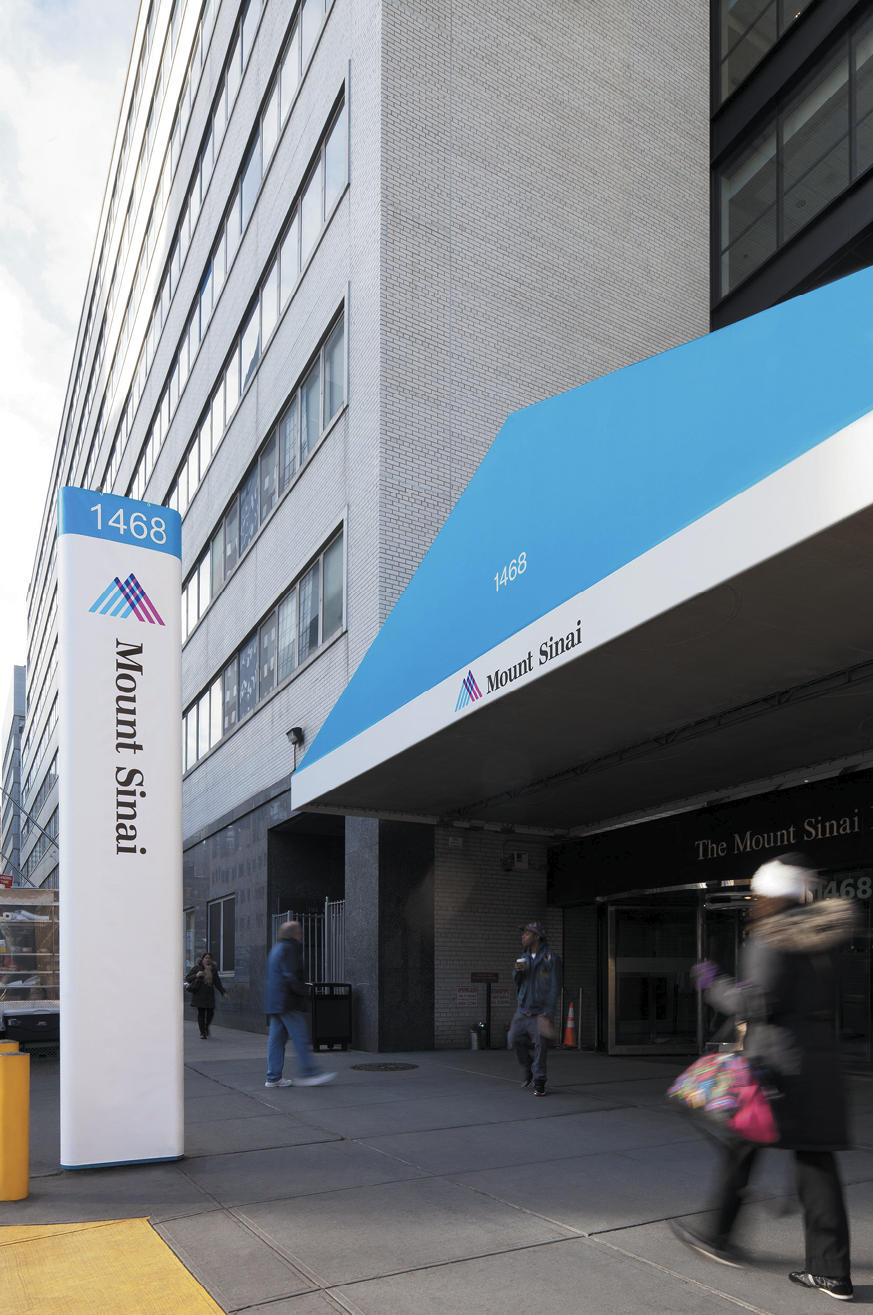- Home
- Media Kit
- MediaJet
- Current Issue
- Past Issues
- Ad Specs-Submission
- Reprints (PDF)
- Photo Specifications (PDF)
- Contact Us
- PRIVACY POLICY
- TERMS OF USE
![]()
ONLINE
![]()
ONLINE

Safety, Quality
And Access
Editors’ Note
David L. Reich, MD, the Horace W. Goldsmith Professor of Anesthesiology, Professor of Artificial Intelligence and Professor of Pathology, has been President of The Mount Sinai Hospital and Mount Sinai Queens, both part of the Mount Sinai Health System, since 2013. Reich was chairperson of the Department of Anesthesiology from 2004-2014 and also served as President of the Medical Board in 2011-2012. Prior to his anesthesiology training, Reich completed two years of residency in general surgery at Harbor/UCLA Medical Center in Torrance, California. He received his BS degree with highest distinction from Pennsylvania State University and his medical degree from Jefferson Medical College in Philadelphia. After arriving at Mount Sinai in 1984, Reich completed a residency in anesthesiology and a fellowship in cardiothoracic anesthesia. His honors include the 2011 Physician of the Year from Mount Sinai Nursing, the 2014 Mount Sinai Alumni Association Jacobi Medallion, the 2021 Heart of Gold Award from the NY Heart Association, the 2021 August Heckscher Founder Award for Community Service from CIVITAS, the 2021 Empire Whole Health Heroes Award from Empire BlueCross BlueShield and Crain’s New York Business, and Pace University’s 2022 Changemakers in Healthcare Award. Reich’s research interests include neurocognitive outcome following cardiac surgery, medical informatics, and hemodynamic monitoring. An academic cardiac anesthesiologist, he has published more than 200 articles, editorials and book chapters. As a hospital executive, he has enhanced safety and quality by forming an institute for critical care medicine, rapidly deploying AI-enhanced clinical decision support, and leading in COVID-19 care and diagnostics.
Institution Brief
Mount Sinai Health System (mountsinai.org) encompasses the Icahn School of Medicine at Mount Sinai and eight hospitals, as well as a large and expanding ambulatory care network. The eight hospitals – The Mount Sinai Hospital, Mount Sinai Beth Israel, Mount Sinai Brooklyn, Mount Sinai Queens, Mount Sinai Morningside, Mount Sinai South Nassau, Mount Sinai West, and New York Eye and Ear Infirmary of Mount Sinai – have a vast geographic footprint throughout the New York metropolitan region. The Mount Sinai Hospital has been listed in the U.S. News & World Report Honor Roll for the last nine years. The New York Eye and Ear Infirmary of Mount Sinai is also ranked nationally in ophthalmology.

The Mount Sinai Hospital (above and below)
How do you describe Mount Sinai Health System’s culture and values?
Mount Sinai Health System comprises a leading medical school, eight hospital campuses and hundreds of outpatient practices. Our culture and values are linked to our intense focus on improving the safety, quality, access, and experience for our patients. Leading edge science is translated into better medical care at the bedside. We serve our communities, including those with limited resources, to promote long and happy lives.
What have been the keys to Mount Sinai’s industry leadership?
The meteoric rise in the scientific accomplishments of the Icahn School of Medicine at Mount Sinai, combined with the scope and scale of the patient care enterprise, has been critical to developing the platforms that drove our movement into a leadership position. The other important factor is that we are a health sciences-only organization, so can focus exclusively on healthcare, as opposed to broader university systems.

Will you discuss your role and areas of focus?
As President of the flagship hospital and an additional community hospital, my role is to innovate to improve the ways we administer healthcare. The Mount Sinai Hospital is continually striving to provide the most complex care with the best outcomes and experience. At Mount Sinai Queens, we perform the first implementations of information systems and workflow improvements within the health system. At the highest level, my role is programmatic development that drives improvements in the triple aim of access, value-based care, and experience of care.
How important is close coordination between the presidents of the hospitals within Mount Sinai Heath System to ensure seamless service and consistent quality across the health system?
The hospital presidents, chief medical officers and chief nursing officers meet often to review our KPI’s and to implement system-wide quality innovations. For example, we synchronize policies for perioperative care across the health system.
“The Mount Sinai Hospital is the laboratory for validating and implementing artificial intelligence-driven clinical decision support to improve hospital safety, quality, and economics.”
Will you highlight your focus on enhancing safety and quality across Mount Sinai, and how are you deploying digital innovation tools including AI-enhanced clinical decision support to achieve this goal?
The Mount Sinai Hospital is the laboratory for validating and implementing artificial intelligence-driven clinical decision support to improve hospital safety, quality, and economics. Once validated, we deploy the models across the health system. We have many deployed tools, but the most impactful include predictive analytics for identifying malnutrition, clinical deterioration, falls, pressure injuries, delirium, and violence. Our digital innovation team works on improving access to care by helping patients to make appointments. Another module is an AI chatbot module to assist with triaging patients to the correct type of care, such as a telehealth visit or recommending a visit to an emergency room.
How important is it for Mount Sinai to build a diverse and inclusive workforce to mirror the diversity of the communities it serves?
Making efforts to attract and retain the best talent is core to our mission. As the largest health system in New York City, we see strong evidence that better outcomes emerge when the workforce is diverse and representative of our patient population. Therefore, diversity, equity, and inclusion are an essential part of our workforce recruitment strategy. We have seen great improvements in diversity, but still have a journey ahead of us to see more diversity at the senior leadership level. I am very hopeful we are on a good track, due to the natural advancement of our diverse mid-career faculty within the organization through leadership succession planning.
What do you see as Mount Sinai’s responsibility to be engaged in its communities and a force for good in society?
Mount Sinai has always held community service, both locally and globally, as a key value. We serve patients of all socioeconomic status since our founding in the 19th century. Our scientific discoveries advance science and medicine and serve to improve health worldwide.
Did you know at an early age that you had a passion to pursue a career in medicine?
As a teen, I realized that I was best suited for a career in science. My family encouraged and supported me through the journey.
What advice do you offer to young people interested in pursuing a career in healthcare?
Find mentors in healthcare through personal, family or school connections or by taking a job or volunteering in a healthcare facility or research lab. See yourself in your mentors’ shoes in the decades to come so that you choose your career pathway wisely.![]()